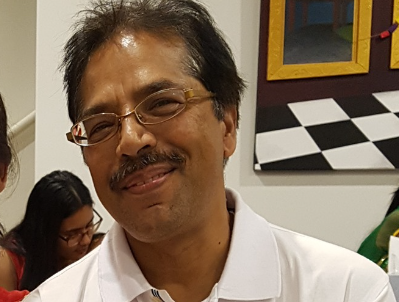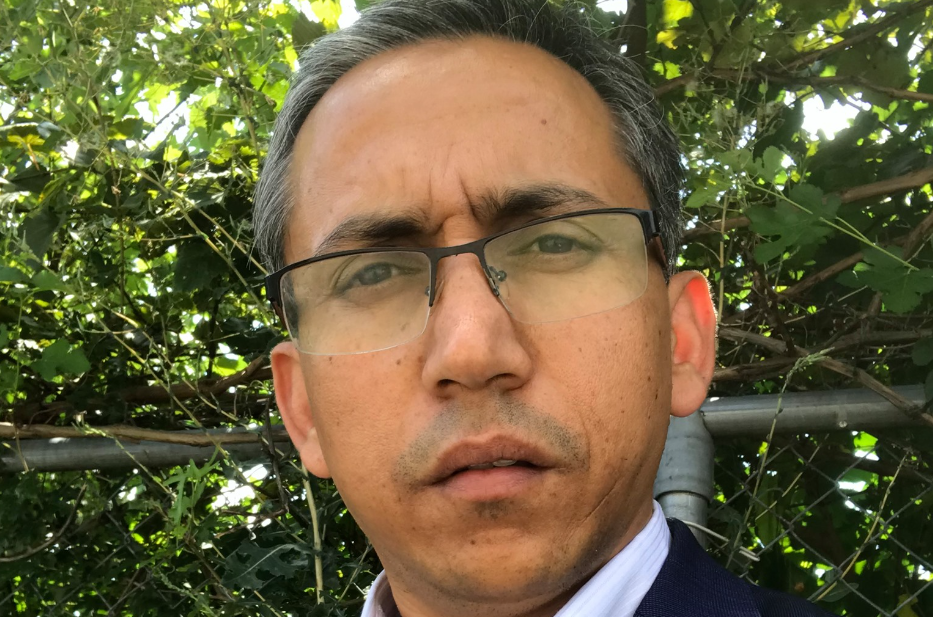By Ram Karki
Late Rizal, 52, was a veteran Bhutanese scholar and freedom fighter based in Nepal. He last breathed on 5 May 2024 in an accident in Kathmandu. He was a scientist, teacher, Bhutanese human rights leader, author, thinker, press freedom activist, scholar, editor, mentor and senior lecturer at Tribhuwan University in Kirtipur (Kathmandu).
I had the privilege of working with the late Govinda Rizal since 2007. Still, our closeness took a turn in 2017 when he sent me a massive bulk of his book Pardesi in Paradise to sell in the Netherlands. I used his book as a weapon to advocate for human rights and democracy in Bhutan, which made his book famous among the Europeans and other international intellectuals who are familiar with Bhutan and the region. Dr Rizal had repeatedly written Facebook posts appreciating my way of doing things, such as selling his book after convincing those people about the Bhutanese refugees and their movement for democracy and human rights in Bhutan.
It was in 2019 when Dr Govinda Rizal became one of the team members of The Bhutan Watch together with Indra Adhikari, me and others. Later, he became the co-editor of The Bhutan Journal and another editor, Indra Adhikari, and the Bhutan Watch started publishing in 2020. As the coordinator, I organised regular meetings to discuss the smooth functioning of The Bhutan Watch and ensure that The Bhutan Journal had enough articles from the various researchers. Late Govinda Rizal made a list of Bhutanese scholars and writers and created a platform to encourage them to write articles for The Bhutan Journal. Despite a considerable challenge due to the formidable efforts of Govinda Rizal and Indra Adhikari, The Bhutan Watch has successfully published its annual The Bhutan Journal continuously since 2020.
Late Rizal and I started the Bhutan Watch Debate Series in 2024 to bring neutral experts to discuss the issues concerning Bhutan and inform the Bhutanese both inside and outside on those issues whose discussion inside Bhutan is considered prohibited. Late Dr Rizal had compiled a list of potential experts for the discussion event.
He planned to organise workshops to provide interested Bhutanese writers and intellectuals on technical writing skills. Dr Rizal believed that all who can write must start writing their own stories, and he wanted to teach the skills of doing that.
Just a day before the tragic accident, we discussed another important debate series – Press Freedom in Bhutan. Unfortunately, news of this death reached by inbox 15 minutes prior to our final planning for the debate.
Dr Rizal remained associated with all initiatives taken by the Bhutanese refugee community. He built excellent relations with community intellectuals, subject matter experts and scholars worldwide.
As someone who worked closely, I found Dr Rizal well-informed. He firmly believed in open discussion backed by logic and evidence. Unlike others, Dr Rizal always wanted to engage with people with conflicting perspectives on the issues concerning Bhutan and the Bhutanese people. He never refused anything directly but chooses words that indirectly imply his rejection. During my innumerable video calls, Dr Rizal sat in his office, took note of our conversation and saved for future reference and verification. He was the reservoir of the information.
Dr Rizal’s unwavering belief in the eventual acceptance by Bhutan it’s people was a source of inspiration for us all. He was confident that one day, he would be able to return to Bhutan. His work ethic was unparalleled- he never rested, never grew tired. If you sent him a draft to review, you could expect his feedback within a remarkably short period.
Dr Rizal’s words always carried weight, and they had a profound impact on my advocacy work for the Bhutanese people. His words were source of inspiration and energy for me.
Dr Rizal was very cautious when it comes to Bhutan’s national interest and territorial sovereignty. He reiterated, we are not against Bhutan but only against the instances of human rights violations and injustice. I found him one of the nationalist and patriotic Bhutanese leaders in exile and he was very optimistic about the dignified repatriation of those willing Bhutanese refugees including him.
Now, with his untimely demise, Bhutan lost a patriot and we in exile have lost a strong pillar of our movement. Had he been the citizen of a liberal democratic country his death would have been a national mourning but sadly he is a refugee in Nepal. As a scientist and a lecturer at Tribhuvan university, he built his reputation among academician and intellectuals which was reflected by the outpouring presence of scholars at his funeral.
We need to strengthen our capacity to complete the mission set by Dr Rizal, and that would be the best and most befitting respect we can give to preserve the legacy of our beloved scholar.
Finally, I extend my heartfelt condolences to all the bereaved family members and pray that the departed soul of Dr. Rizal rests in eternal peace.


